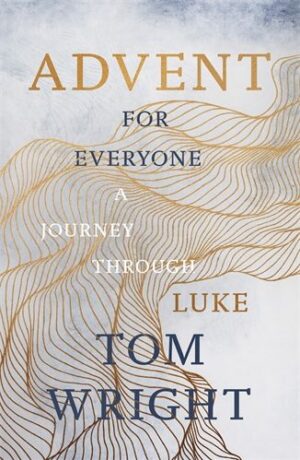



The Rich Young Ruler: Luke 18.15–30
People were bringing even tiny babies to Jesus for him to touch them. When the disciples saw it, they forbade them sternly. 16But Jesus called them. ‘Let the children come to me,’ he said, ‘and don’t stop them! God’s kingdom belongs to the likes of these. 17I’m telling you the truth: anyone who doesn’t receive God’s kingdom like a child will never get into it.’
There was a ruler who asked him, ‘Good teacher, what must I do to inherit the life of the age to come?’
‘Why call me good?’ said Jesus to him. ‘No one is good except God alone. 20You know the commandments: Don’t commit adultery, don’t kill, don’t steal, don’t swear falsely, honour your father and mother.’
I’ve kept them all’, he said, ‘since I was a boy.’
When Jesus heard that, he said to him, ‘There’s just one thing you’re short of. Sell everything you own, and distribute it to the poor, and you will have treasure in heaven. Then come and follow me.’
When he heard that he turned very sad; he was extremely wealthy.
Jesus saw that he had become sad, and said, ‘How hard it is for those with possessions to enter God’s kingdom! 25Yes: it’s easier for a camel to go through the eye of a needle than for a rich man to enter God’s kingdom.’
The people, who heard it said, ‘So who can be saved?’
‘What’s impossible for humans’, said Jesus, ‘is possible for God.’
‘Look here,’ said Peter, ‘we’ve left everything and followed you.’
‘I’m telling you the truth,’ said Jesus, ‘everyone who has left house or wife or brothers or parents or children, because of God’s kingdom, 30will receive far more in return in the present time – and in the age to come they will receive the life that belongs to that age.’
Luke, ever the artist, is building up his great picture with colour after colour, layer after layer of paint, until he draws the eye towards the great scene he has in mind when Jesus arrives in Jerusalem. He speaks here of the extraordinary challenge of entering God’s kingdom, of sharing the life of the age to come.
Luke emphasizes how young the babies were that people were bringing to Jesus. Jesus’ rebuke to the disciples rings out still today in a world where thousands of children are treated as sub-human, as disposable commodities. These are the ones, he says, who most truly show us what it means to accept and enter God’s kingdom. There is something about the helplessness of children, and their complete trust of those who love and care for them, which perfectly demonstrates the humble trust he has been speaking of all along. Jesus doesn’t offer a romantic or sentimental view of children; he must have known, in the daily life of a village, and through growing up as the oldest of several children, just how demanding and annoying they can be. But he sees to the heart of what it means to receive God’s kingdom; it is like drinking in one’s mother’s milk, like learning to see – and to smile! – by looking at one’s mother’s eyes and face.
By contrast, the rich ruler who appears so confident, so well organized, so determined, looks into the face of the one he calls ‘good’ and turns away sad. He had hoped to impress Jesus with his piety and devotion; unlike the ‘sinners’ of whom we have heard so much in the previous chapters, he had a clean moral record in keeping the well-known commandments. His question, Jesus’ answer, and the subsequent conversation with the crowd and the disciples, enable us to see to the heart of what is going on as Jesus approaches Jerusalem.
Jesus was putting into operation that for which most Jews had longed: God’s kingdom, God’s sovereign saving power operating in a new way for the benefit of the whole world. This meant that already, in the present, the period of time they spoke of as ‘the age to come’ was breaking in. It would come fully in the future, when all evil had been done away with, and then those who belonged to it would share ‘the life of the coming age’. Because the word for ‘age’ here is often translated ‘eternal’, the phrase ‘eternal life’ has regularly been used to describe this life. For many today, this simply means an existence going on and on for ever. This may or may not be desirable; opinions will differ. But in any case it doesn’t catch the flavour, the sheer excitement, carried by the original.
In God’s new age, so the Jews believed, everything will be new, fresh, and free from corruption, decay, evil, bitterness, pain, fear and death. And that’s just the beginning. There will be new possibilities and opportunities, new joys and delights. Heaven and earth will be joined together, God and his children will live with each other. That’s the state of things people were longing for. It would come about when God finally ruled the world with his saving power.
And this is what Jesus was bringing in the present. Evil and death, to be sure, were still going on all around. Jesus himself had yet to face the full force of the powers of the old age. But where he was, and where people with humble and penitent trust accepted that God’s kingdom was active in and through him, there the life of the new age began to be seen.
That was why the rich ruler became sad. In order to inherit the life of the new age, he had to abandon the val- ues of the old and trust himself totally to the new, like a diver throwing himself forwards into the water. He couldn’t seriously be seeking for the new age if he couldn’t abandon the symbols of the old. The commandments were good and important; but if he was wedded to possessions then he would never be able to accept God’s kingdom like a child, with the humble trust that allowed God to be God. The true wealth is to be found in the heavenly dimension: ‘treasure in heaven’ doesn’t simply mean the sort of treasure you possess after you die, but treasure that’s kept safe in God’s storehouse until the time when heaven and earth are brought into their intended unity.
Already, even in the present time, this new age breaks in to our sad old world. Within the life of Christian fellow- ship there are new homes, new families, new possibilities that open up for those who leave behind the old ways. The church is called in every age to be that sort of community, a living example of the age to come. In that sort of self- less and trusting common life church members themselves, and the world around, can glimpse what God’s new world is like, and learn to live that way more and more.